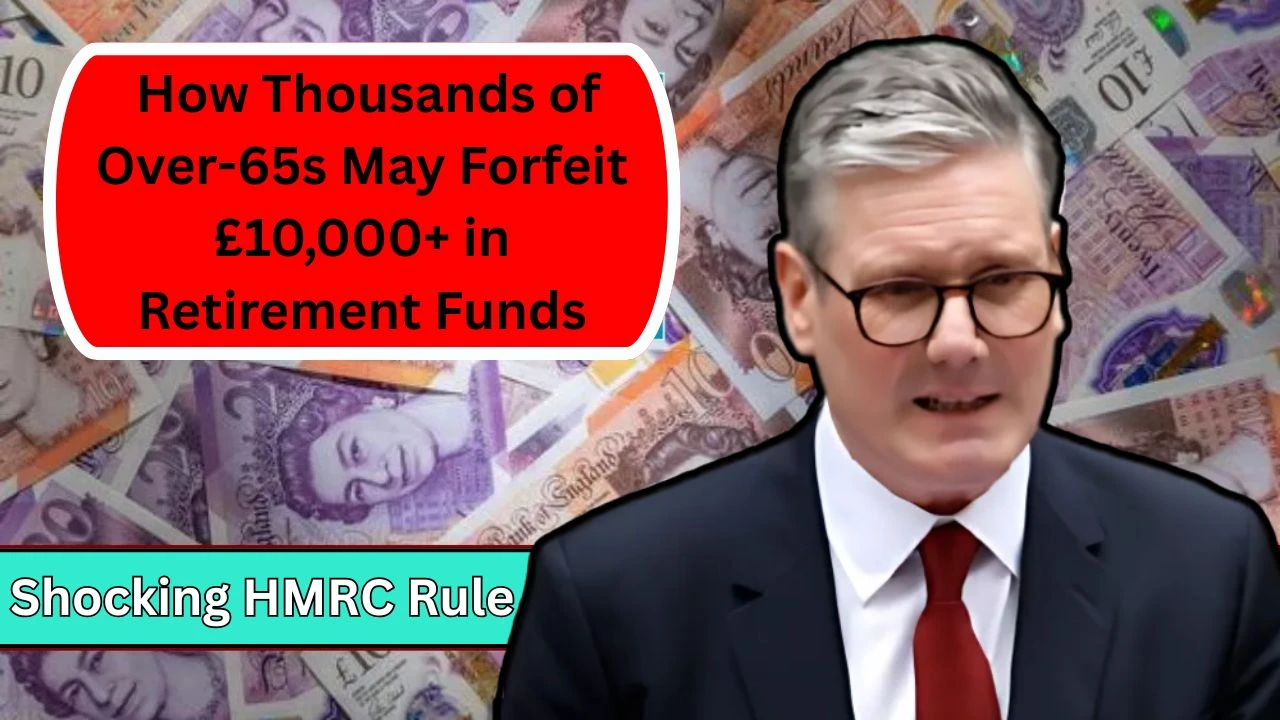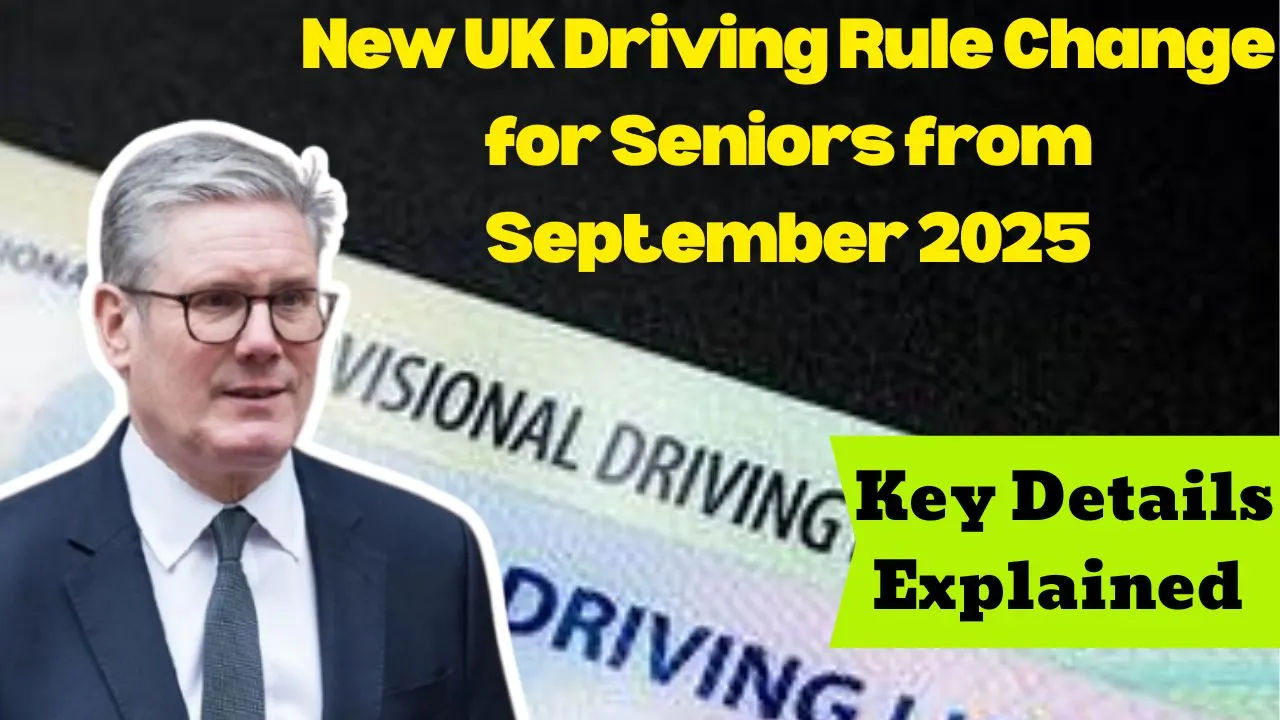Losing a chunk of your pension savings without realising it can be a terrifying prospect, especially if you are over 65 and counting on that money for your living. Many retirees believe their pension is protected once they reach retirement age, but there is a loophole many do not know about. The HMRC Rule behind this issue has created confusion and frustration. It’s not just one rule, but a mix of complex tax processes, emergency codes, and pension withdrawal traps.
The HMRC Rule at the heart of this issue isn’t about seizing pensions at random. It concerns how tax codes, first pension withdrawals, over-taxation, and delayed refunds can leave older people temporarily losing out, sometimes by thousands. This article explains exactly what the rule is, who it affects, recent changes, and how to reclaim what is yours.
What the HMRC Rule Means for Your Pension
The HMRC Rule has become a hidden trap for many over-65s accessing their retirement savings. While it’s not a single law, this term covers a set of tax processes that can seriously affect how much of your pension you actually receive. Most retirees are unaware that their first pension withdrawal may trigger emergency tax coding, which assumes that withdrawal is part of a regular monthly income. As a result, HMRC may deduct thousands more in tax than necessary, leaving you with a much smaller payout than expected.
This isn’t the only problem. There are rare cases where pensions can be partially forfeited due to criminal misconduct, especially in the public sector. Although personal contributions are usually protected, employer-paid portions of the pension can be taken away. More commonly, people are caught by overtaxation, slow refunds, or pension scams that lead to long-term financial losses. The key to protecting your retirement fund is understanding how this rule applies, staying alert to the risks, and taking action quickly if you’ve been affected.
Overview table
Below is a table giving an overview of the key facts from the original report:
| Key Area | Description |
| Who is Affected | Over-65s taking pension withdrawals, especially for the first time |
| Main Issue | Emergency tax code causes higher tax deduction than necessary |
| Estimated Loss | Between £3,000 and £10,000 in overpaid tax (can be reclaimed) |
| Rare Cases | Pension forfeiture in public sector jobs after serious criminal misconduct |
| Refund Process | Requires filling HMRC forms (P55, P50Z, or P53Z) depending on your situation |
| Upcoming Change | From April 2025, tax codes will auto-adjust to reduce over-taxation |
| Risk of Scam | Early pension access offers may lead to 55% tax penalties and total loss |
Who Is at Risk Under the HMRC Rule
Most people over 65 will not face permanent loss or forfeiture of their pension under this rule. The extreme case of pension forfeiture applies only to specific public service jobs where a person has committed a serious crime in connection with their duties. Even then, it is carefully regulated, and personal contributions remain protected.
What is far more common is the problem of over-taxation. If someone with a defined contribution pension takes a flexible first withdrawal, HMRC may use an emergency tax code that assumes you’ll keep taking similar large amounts each month. That causes an immediate tax deduction that is too high. Many don’t realise until months later they can reclaim.
How Much Can Be Lost, and Where the £10,000+ Number Comes From
The figure of £10,000+ comes largely from the overtaxed amounts and delays in reclaiming them, not from the rare forfeiture cases. For example:
- Millions of retirees have been affected by the emergency tax system since Pension Freedoms were introduced in 2015.
- On average, many over 65s face reclaim amounts in the thousands when they realise the tax taken was too much.
- Some overpayments have been in the region of £3,000 to £4,000 on first withdrawals alone.
While you will in many cases eventually get money back, the delay and complexity (filling forms like P50Z, P53Z, P55) can make it seem like forfeiture or permanent loss.
What’s Changing from April 2025
Recognising the issue, HMRC is implementing changes to make the tax process fairer right from the first pension withdrawal. Key changes include:
- Automatic updates to tax codes when someone first takes a pension payment. This means no more emergency Month-1 codes being used by default in many cases.
- Faster correction of tax deductions, so excess tax paid is reduced and refunds reach people sooner.
- Simplified reclaim journey with better guidance and clearer forms for those who have already been overtaxed.
These changes should reduce how many over 65s are left temporarily out of pocket by large sums. But they don’t address the rare forfeiture situations. In those, rules remain strictly for serious misconduct by certain public officials.
How to Check If You’ve Been Affected and What to Do
If you’re over 65 and relying on your pension, here’s what to do:
- Check your tax code
When you take your first flexible pension withdrawal, see if you were put on a temporary or emergency tax code. If it seems higher than expected, that may be a red flag. - Keep records
Retain statements showing amounts withdrawn, tax deducted, and your expected income. Having good paperwork makes a reclaim simpler. - Use the right reclaim form
Depending on your situation:
• Form P50Z – if you’ve taken the entire pension pot and have no other income.
• Form P53Z – if you’ve cleared your pot but have other taxable income.
• Form P55 – if you’ve taken a lump sum and left some pension funds untouched. - Seek expert advice
If in doubt, especially where there are public service pensions or possible forfeiture issues, talk to a regulated pension or tax adviser. - Watch out for scams
Offers for early access to pension funds before legal age may be illegal and costly. They often promise large gains but can result in hefty fees and tax penalties up to 55 percent.
Final Thought
The HMRC Rule around pension tax and withdrawals may seem unfair, but knowledge is powerful. If you’re over 65, this is something you should check on now, not later. It could mean the difference between reclaiming thousands and leaving money on the table.
If this article helped you understand what to look out for, please comment with your own experiences or questions. Share this with friends and family who are over 65 too. They might be affected without even knowing it.
Very unlikely for most people. Forfeiture only applies in serious criminal or misconduct cases in public service, and protections are in place for personal contributions.
Many over 65s have faced thousands of pounds in excess tax deductions on their first pension withdrawals. Some individuals reclaim around £3,000 to £4,000 or more.
No. The new rules from April 2025 aim to prevent overtaxation going forward. But if you’ve already been affected, you can still reclaim using the forms relevant to your situation.
No. The HMRC Rule doesn’t allow seizure of an entire pension for normal tax issues. Only in rare public service forfeiture cases can parts of pensions be removed, and even then not your own contributions.
Check your past withdrawals, examine whether an emergency tax code was used, see whether a reclaim form applies to you, and possibly seek professional advice to ensure you get what you’re due.












